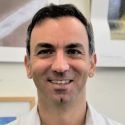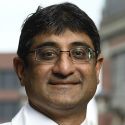Webinars
This page contains exclusive content for the member of the following sections: TTS, TID. Log in to view.
"Old Pathogens – New Patient Types": Infections in CAR-T Cell Recipients
107.1 - "Old Pathogens – New Patient Types": Infections in CAR-T Cell Recipients
Presenter: Malgorzata Mikulska, Maunank Shah, Joshua Hill, Dionysios Neofytos, , ,
Authors: Malgorzata Mikulska, Maunank Shah, Joshua Hill, Dionysios Neofytos
Learning Objective
Appreciate the complexities of infectious complications in CAR-T cell recipients.
Important Disclaimer
By viewing the material on this site you understand and accept that:
- The opinions and statements expressed on this site reflect the views of the author or authors and do not necessarily reflect those of The Transplantation Society and/or its Sections.
- The hosting of material on The Transplantation Society site does not signify endorsement of this material by The Transplantation Society and/or its Sections.
- The material is solely for educational purposes for qualified health care professionals.
- The Transplantation Society and/or its Sections are not liable for any decision made or action taken based on the information contained in the material on this site.
- The information cannot be used as a substitute for professional care.
- The information does not represent a standard of care.
- No physician-patient relationship is being established.
Contact
Address
The Transplantation Society
International Headquarters
740 Notre-Dame Ouest
Suite 1245
Montréal, QC, H3C 3X6
Canada
Используйте Вавада казино для игры с бонусом — активируйте промокод и начните выигрывать уже сегодня!





